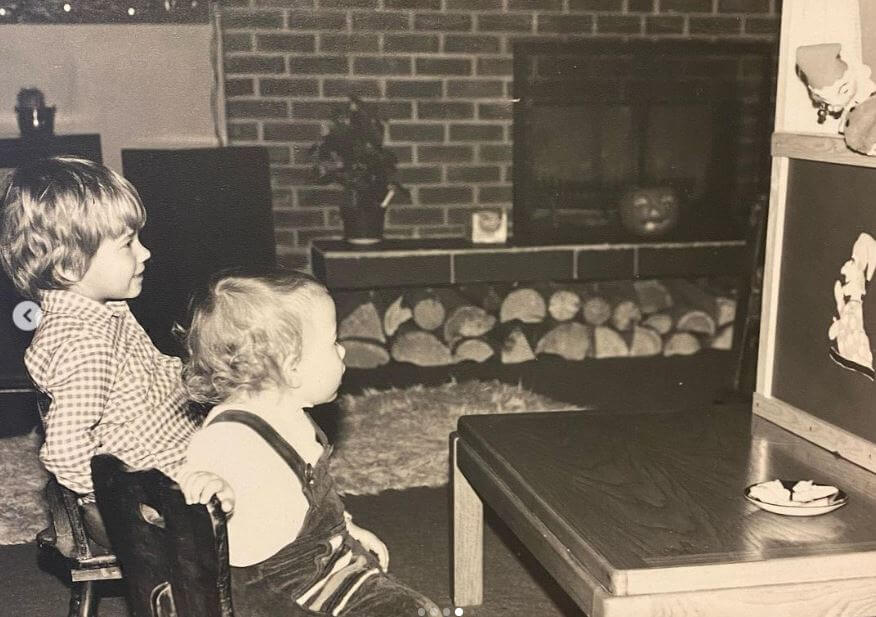
One of my favorite ways to learn about people and the world is through stories. We take story-telling for granted in the fast-paced, visual-imagery dominated world of technology. Stories I've been listening to recently have really shown me how much we can learn about not just the person telling the story, but also details about the world and how people think and behave - in ways that simply can't be transmitted in any other form.
Stories are an important tool for us to transmit knowledge and engage our hearts and minds in powerful ways.
Various areas of the brain become engaged when we listen to stories. For example when a story contains details about sights, sounds, smells, etc., those areas (cortices) become activated. The more multisensory a story is, the more 'anchors' it has in the brain for memory. When stories also have various emotional reactions and dimensions to it, this activates even deeper areas of the brain that prioritize storing of details because of their emotional element. Jerome Bruner, a cognitive psychologist, suggests that recall is 22 times stronger when information is presented in story format rather than just data.
A research project tested the impact of storytelling on children’s brains, using near-infrared spectroscopy (NIRS) and showed that storytelling had longer sustained brain activation than picture books. This is partly because picture books give you the visuals, while stories lead the brain to use different networks in order to imagine the various sensory details.
*(which doesn't mean picture books aren't useful, but story-telling activates the brain differently. And in any case, if you read a picture book to a child, it's your voice, your presence and engagement with it that matter more than the pictures themselves).
Other researchers such as Paul Zak and colleagues, have also found that story-telling is associated with the release of oxytocin, as well as synchronized brainwave activity. In the book Made to Stick: Why Some Ideas Survive and Others Die, educators Chip and Dan Heath put a large focus (several chapters) on the power of using stories (and the research that supports it - such as the use of stories for training medical professionals) for helping people feel motivated to learn and be able to apply what they learn.
The more we tell stories, the more we also add our unique and individuated perspectives to the information that is being shared. A story is personal - there is nothing generic about it. What happened to each person happened to each person - the phrases we use, the details we choose to include are not based on averages or algorithms. Stories reveal what our eyes were looking at, what our senses where detecting in that precise moment in time. We tell those details because they are 'salient'... they meant something and mean something to us as we tell them. That's what's so special about story-telling. It helps us understand each other on a richer, more personal level. In the profit-and-approval-influenced echo chambers that exist online, taking time to tell and listen to stories is something that I think would improve mental health and brain functioning for many people.
*pic is of me and my brother watching my dad do a puppet show. To be honest, there was a witch puppet that REALLLLY freaked me out and I had to hide it in the closet for a while lol.
**When I was a nanny, one of the most requested activities of all the kids I worked with was for me to tell stories. They especially loved any stories about my travels, and especially ones that involved animals... probably also because I imitated them lol - goats coughing up cardboard near my shack in a rural village in Africa, baboons stealing toilet paper and loaves of bread at an elephant sanctuary, alpacas chewing on random things in Peru, mama and baby sheep crying out to find each other.. as you can imagine, pretty entertaining sensory details there!)
With Love From Me to You
xoxo Stefanie
ps- had my first 'bjj' class last night... it was amaaazing. Will share more as I go. Tomorrow headed out for wilderness first responder training!
pps- one example of story-telling that reveals a lot of history is the Kevin Owens Podcast. I'll tell you about one of my own favorite story-tellers in a future post 🙂 (he's a nerd but also pretty cool)
#storytelling #resilience #mindset #neuroscience #heartbrainconnection #community #team #familyunit #powerpartnership #mission #purpose #endurance #warriorsheart #behindthescenes #offscreens #longtermvision #love #love #love #unity #unifiedpurpose #cometogether #humanpotential #genx #awakening #unraveling #crisis #passingdownwisdom #futuregenerations


